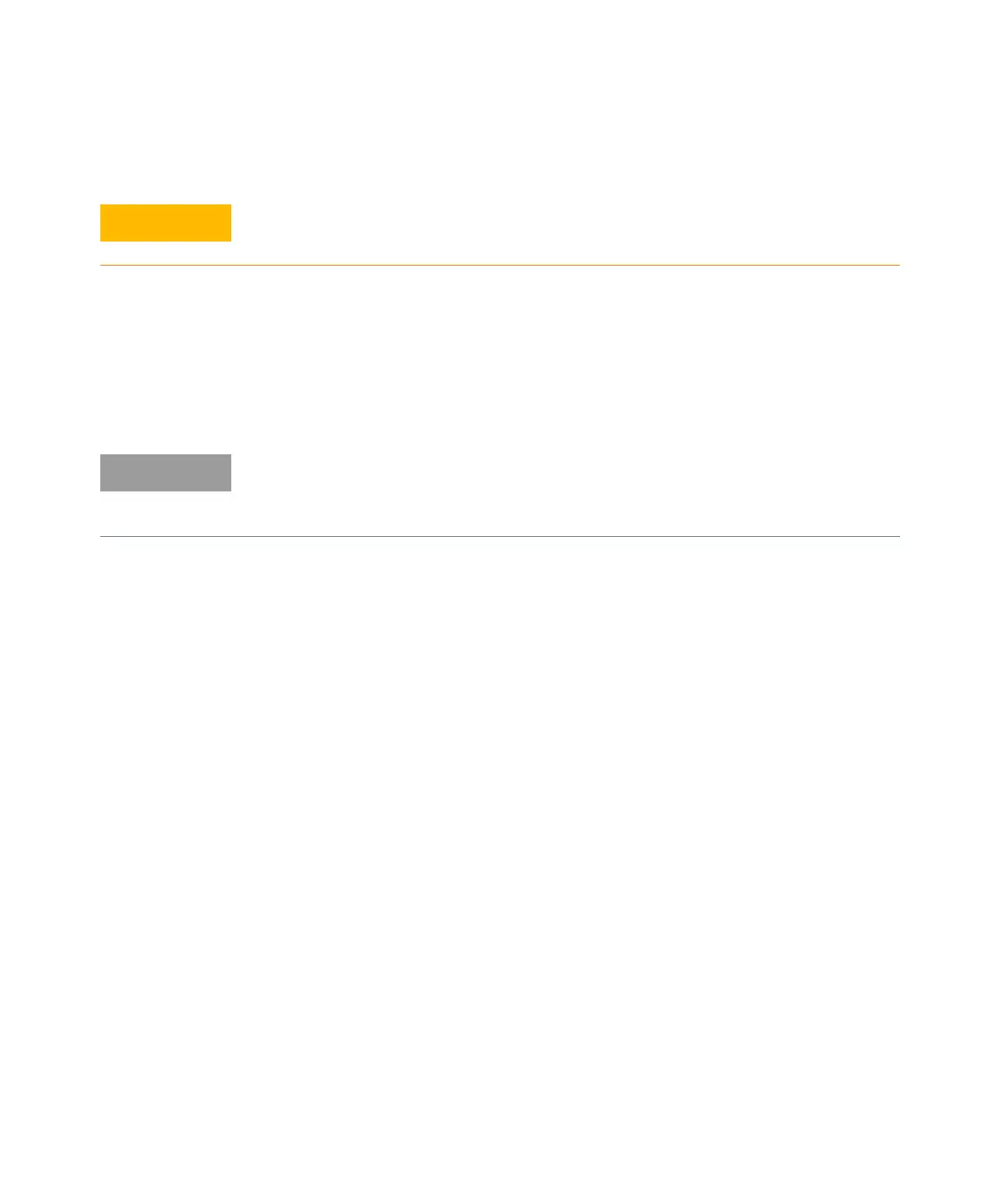Making Measurements 2
Keysight U1253B User’s and Service Guide 71
Testing Diodes
To test a diode, turn the power off to the circuit and remove the diode from the
circuit.
Set up the multimeter as shown in Figure 2-12, then use the red probe lead on the
positive terminal (anode) and use the black probe lead on the negative terminal
(cathode) and read the display.
Next, reverse the probes and measure the voltage across the diode again (refer to
Figure 2-13 on page 73). The diode’s test result is based on the following:
– A diode is considered good if the multimeter displays “OL” in reverse bias
mode.
– A diode is considered shorted if the multimeter displays approximately 0 V
in both forward and reverse bias modes, and the multimeter beeps
continuously.
– A diode is considered open if the multimeter displays “OL” in both forward
and reverse bias modes.
Disconnect circuit power and discharge all high-voltage capacitors before
testing diodes to avoid damaging the multimeter.
– The cathode of a diode is indicated with a band.
– This multimeter can display diode forward bias of up to approximately 3.1 V.
The forward bias of a typical diode is within the range of 0.3 V to 0.8 V.
